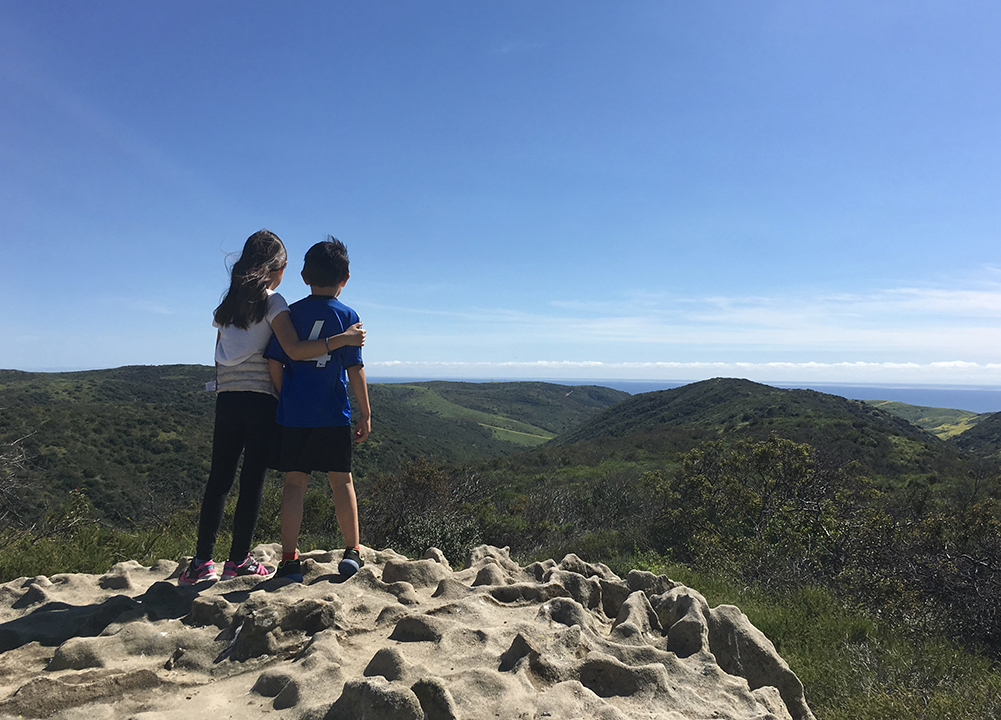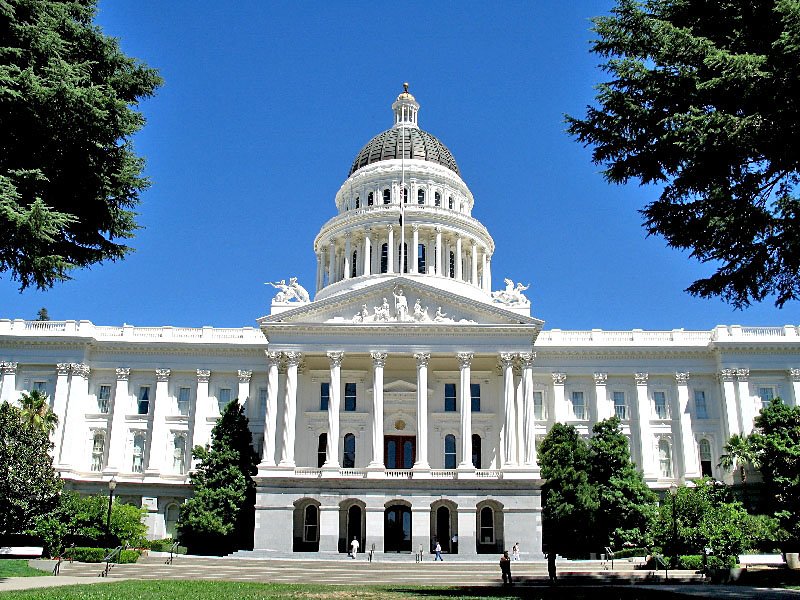
Sierra Club's Forests, Wood & Climate Report
Register Now for the California Deal Summit
Legislature’s 2019 Final Sprint
Sierra Club's Forests, Wood & Climate Report
By Daniel Barad

With growing climate-change-induced anxiety, industries are greenwashing more than a laundromat after St. Patrick’s Day.
For its part, the logging industry is peddling the idea that tree-derived products are more desirable than their synthetically manufactured alternatives because they can sequester carbon, biodegrade and often have a lower carbon footprint. This is not entirely baseless, but we cannot trust the industry to define sustainability.
A group of Sierra Club volunteers called the Forests & Climate Team sought to define the circumstances in which environmental activists can advocate for wood products and still sleep soundly at night. Thus, the Forests, Wood & Climate report was born.
“Once again the forests were being forgotten, and we saw a need to try to get out ahead of the rising wave and influence the dialog,” said Jason Grant, the Sierra Club volunteer lead for the team.
Humans emit an estimated 8.9 billion metric tons of carbon (BMtC) every year. Existing forests remove 2.6 BMtC. Cutting emissions and using more sustainable products are components of reducing emissions (shout out to our Buy Clean Campaign, which is focused on procuring sustainable materials). However, in creating better products, it’s essential to protect the earth’s most valuable carbon sink.
To this end, the Forest and Climate Team report lauds the Forest Stewardship Council (FSC) certification which is given to wood products that are the result of specific climate and ecologically conscious forest practices.
The FSC certification requires loggers to conserve our oldest and most biodiverse forests, retain more trees, take large swaths of land off the chopping block by creating stream buffers and never clearcut. Studies estimate that such practices can sequester 20-60 percent more carbon than business-as-usual commercial logging.
The FSC certification is voluntary, which essentially depends on industry to regulate itself. Therefore, the report calls for strict forest practices regulations that will require logging companies to be effective stewards of forest ecoservices.
Finally, the report reiterates Sierra Club’s strong opposition to commercial logging on public lands and promotes a Forest Carbon Trust which would pay private forestland owners to preserve their forests rather than log them.
Read the Forests, Wood & Climate report and let us know what you think. If you like what you see, consider joining Jason and the Forest & Climate team as they push for climate-friendly forestry. You can visit their website here and contact Jason at jason@jasongrantconsulting.com.
Register Now for the California Deal Summit

You’ve probably heard a lot about the Green New Deal, the Congressional resolution designed to set the nation on a course to cut climate pollution while boosting family-supporting jobs.
Many of the elements that are expected to implement a Green New Deal-renewable energy, cutting fossil fuel demand, Buying Clean—have been pioneered in California.
But is the California Deal as robust as needed? Does California’s approach adequately address the intersection of good jobs, social justice and the environment? Can we do better?
These are just a few of the questions labor, environmental justice and Sierra Club activists will be discussing at Sierra Club California’s one-day summit in Pasadena on October 26, from 9 a.m. to 5 p.m.
The Sierra Club California Summit is a new format and new venue for our annual meeting. We’ll be addressing a specific theme, the California Deal and how we can improve it. Panelists and audience members will have opportunities to share ideas about transportation, water policy and the California Deal generally.
Keynote speaker is Manuel Pastor, a leading expert on environmental justice, regional inclusion, sustainable development, and community empowerment. His most recent book is “State of Resistance: What California’s Dizzying Decent and Remarkable Resurgence Mean for America’s Future.”
Tickets to attend the summit are just $20 in advance and fee covers lunch and a reception. You must register in advance to attend. Reserve your space now because seating is limited.
Legislature’s 2019 Final Sprint
By Kathryn Phillips

California’s legislative session is a bit like a track and field event, filled with hurdles and mad dashes. This month begins the final sprint to the finish line for this year. And by the time that sprint is done on September 13, we can expect to be a bit breathless.
On August 12, Assemblymembers and Senators will return from their month-long summer recess. For the first two weeks after their return, most attention will be focused on the status of bills going through the appropriations committees.
The last day for the appropriations committees to release bills to the floor is August 30. And when bills are released, it’s usually in one big flood.
So between August 30 and September 13, the heart of the sprint begins as interest groups, legislators, lobbyists and the general public try to persuade legislators to vote for or against bills on the Assembly and Senate floors.
There are a range of ways to persuade. Many industry interests do their targeted persuasion by contributing to legislators’ campaign funds. During this last month of the session, local restaurants and cafes around the Capitol become venues for fundraising events held by legislators.
Want to have eggs and bacon with a legislator? Not hard to do if you buy a $1,200 ticket to that legislator’s fundraising breakfast.
For public interest groups like ours, the tactics are more about making sure legislators remember they work for constituents who share our view. Typically, Sierra Club California staff advocates talk to legislative staff and legislators to make sure they know which bills deserve to pass or not.
If it appears a bill we support faces a lot of opposition, then we call on members and supporters like you to email or call your legislators. This helps make sure legislators know constituents care and are watching.
We are tracking about 400 bills this year. About one third to a half of those bills will get to the floor by the time the lights go out in the Capitol early September 14.
You can see on our website a list of bills our volunteer legislative committee and staff have agreed are the highest priorities for this year. A number of the bills on the priority list have died or become two-year bills. One—Senate Bill 307 to help block a harmful water scheme promoted by Cadiz Inc.—has made it all the way through the system and been signed into law.
Among our top priorities now is passage of Senate Bill 1, which will protect California’s environment from rollbacks in key federal environmental regulations. Other priorities include passing packaging reductions bills (Senate Bill 54 and Assembly Bill 1080), and passing a bill (Assembly Bill 5) that will help prevent misclassification of jobs in a way that leads to more truck pollution.
Watch your email over the next month for alerts asking you to help contact legislators about these or other bills. Every time you take action on one of our alerts, you are letting your legislators know that you are tracking the bills and that you care.
Follow Us:
  |
Thank you for being a part of our work! Consider making it monthly. You may securely donate online or by sending a check to Sierra Club California at 909 12th Street, Suite 202, Sacramento, CA 95814.
